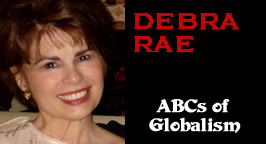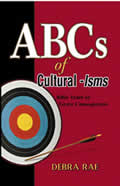RIGHT
TO FREE EXERCISE
PART 2 of 2
By
Debra Rae
June 16, 2012
NewsWithViews.com
Part 1 Revisited
Once again, a four-year legal fight in Washington State has landed in a federal courtroom. In the end, two individual pharmacists (Margo Thelen and Rhonda Mesler) and a family-owned pharmacy (Ralph’s Thriftway in Olympia) could be forced out of the pharmacy profession solely because of their religious beliefs.[1] Yes, in America.
The plaintiffs view moral choice as their constitutional right under the “free exercise” clause of the Constitution.[2] They cannot in good conscience dispense Plan B or Ella because they believe human life begins at the moment of fertilization; and both drugs operate by destroying a fertilized egg, or embryo. This dilemma, they’re told, is best resolved through a new line of work. But plaintiffs disagree.
The Pharmacy Board found no evidence that anyone in the State had ever been unable to obtain Plan B (or any other time-sensitive medication) in a timely fashion because of religious objections. Yet conscientious objectors alone have been singled out for refusing to dispense drugs to which they morally object.
Facilitated Referrals, Yes!
Conscientious Facilitated Referrals? No Way!
It can’t be emphasized enough that, with or without referrals, there’s no documented access problem for any drug in the State of Washington (Plan B included). A patient’s need for timely delivery is met effectively by “alternative” facilitated referral. In fact, a survey initiated by the Pharmacy Board revealed that 85% of the responding pharmacies knew of others within a five-mile radius of their own. Were hospitals and other delivery options listed on that survey, the percentage would be even higher.
Facilitated referral is a time-honored practice that oftentimes better serves patients since it’s potentially faster. Even in remote, rural areas, resources are available to patients through Planned Parenthood, NARAL, the prescribing physician, social services, the internet, and/or third party delivery services—e.g., collaborative agreements, remote telepharmacy programs, automated dispensing machines, and balancing systems for owners of pharmacy chains.
If timely, non-restrictive access were truly a "right," as opposed to a convenience, as the State would have us believe, then all pharmacies would be forced to operate 24/7 under threat of government enforcement. For now anyway, this isn’t the case.
Non-Neutral, Special Interest Politicking
The Washington State Pharmacy Board argues that rules are “neutral” and “generally applicable.” But this is not the case. In 2006, the State Board of Pharmacy unanimously voted to support a rule protecting pharmacists’ right of conscience until, that is, the Governor’s office intervened and insisted that the only allowable exemptions must be of the non-moral, non-religious (hence, non-neutral) variety.
At the time, Governor Christine Gregoire replaced several board members with candidates screened by Planned Parenthood; and she boycotted Ralph’s Thriftway that, for decades, had served the Governor’s Mansion. Buckling under the Governor’s pressure, the board ultimately adopted a version of the regulations recommended by the Governor and drafted by Planned Parenthood. (Can you say “special interest” politicking?)[3]
While the board insists that it’s the pharmacy (not the pharmacist) subject to discipline, the pharmacist nonetheless pays a dear price. Just ask Margo Thelen. A respected pharmacist for decades, Thelen served customers well—sometimes by paying for, or hand delivering, their drugs. With her Spanish-speaking customers in mind, she even hired a tutor to hone her second language skills!
Aware of her conscientious objection to Plan B, her employer (Safeway) happily accommodated Thelen until, that is, the politically driven new rule made it financially unfeasible. Of three methods the board discussed to accommodate conscientious objectors, one was singling out a conscientious objector for termination.
A single parent and (at the time) sole provider for her household, Thelen felt compelled to leave the job she loved before that could happen. In doing so, she understood that potential employers were more likely to hire a non-conscientious objector, rather than suffer the expense and hassle of accommodating a religious, moral objector.
Tumbling Down the Slippery Slope
A pharmacist consultant with the Department of Health, Timothy S. Fuller testifies that “safety” is the Pharmacy Board’s driving principle. In practice, however, this isn’t completely true. If forced to dispense Plan B, a pharmacy committed to “do no harm” must violate the “safety” principle with respect to an embryo. After all, the function of an early abortifacient, as Plan B, is to “harm” the embryo’s earliest developmental stage.[4]
Granted, not everyone agrees on these matters, but think about it: Just because something is legal doesn’t make it safe, ethical, or moral. On the basis of conscience, a pacifist need not go to war, and a nurse need not participate in an abortion. Most concur that, when it comes to Death with Dignity for adults, health care workers should be free to opt out.
To negate right of conscience on behalf of the unborn is to open the floodgates—perhaps to partial- and live- birth abortions (infanticide), harvesting and selling baby parts in the name of science. All undermine human dignity and violate core principles of “life, liberty, and pursuit of happiness” (specifically for the unborn).[5]
If a provider believes use of legal emergency contraceptives, medical marijuana, and/or lethal drugs for physician-assisted suicides are harmful, he mustn’t be forced to dispense. But if “choicers” have their way, a pharmacist could be strong armed to forfeit choice of conscience, career, or privately owned business in deference to someone else’s perceived “right” to convenience.[6]
Even Non-Christians Get It!
With the single exception of Washington State, nations of this world collectively affirm everyone’s "right to freedom of thought, conscience, and religion … and to manifest his religion or belief in teaching, practice, worship, and observance." Check it out: Article 18 of the Universal Declaration of Human Rights.
In the words of Mohandas Gandhi, “There is a higher court than courts of justice, and that is the court of conscience,” which, he adds, “supersedes all other courts.” This rings especially true for a nation, as ours, founded on biblical principles. Andrew Jackson said it well: “As long as our government is administered for the good of the people, and is regulated by their will; as long as it secures to us the rights of persons and of property, liberty of conscience and of the press, it will be worth defending.”
A Moral Mandate to Defend Conscience
Deputy National Litigation Director for the Becket Fund for Religious Liberty, Luke Goodrich rightly insists, “No individual should be forced out of her profession solely because of her religious beliefs. If pharmacies can refer patients elsewhere when a drug is unprofitable or out of stock, they should be allowed to do the same thing when the drugs violate their deepest religious convictions.”
| Subscribe to the NewsWithViews Daily News Alerts! |
In America folks may agree or disagree with my convictions as a Christian (and I with theirs), but they may not deny me (or anyone) the right to voice and practice heart held convictions. The U.S. Constitution affords everyone the rights to “free exercise” and “due process.”
The First Amendment implicates Washington State pharmacy responsibility and stocking rules; and if all are not enforced, it’s only fair that none should be (Judge Ronald Leighton, December 9, 2011). Agree or not, Albert Einstein cautioned, “Never do anything against conscience even if the state demands it.”
Make no mistake. Stormans v. Selecky is a landmark case. If special interest politics were to prevail over the constitutional right to “free exercise of religion,” then everyone’s core convictions would be “up for grabs.” Next time, maybe yours. For part one click below.
Click here for part -----> 1,
� 2012 Debra Rae - All Rights Reserved
Footnotes:
1.
Stormans v. Selecky, a landmark case handled by the Becket
Fund, a non-profit, non-partisan law firm that protects thereligious
liberty of all faiths. Also on the legal team are lawyers Kristen Waggoner
and Steve O’Ban with Seattle-based law firm Ellis, Li & McKinstry.
Plaintiffs are challenging the Washington State Pharmacy Board ruling
that, despite religious objections, pharmacies must forfeit their prerogative
to facilitated referral and stock/dispense early abortifacient drugs,
as Plan B and Ella.
2.
The First Amendment of the Constitution of the United States of America,
ratified effective 15 December 1791, follows: “Congress shall
make no law respecting an establishment of religion, or prohibiting
the free exercise thereof; or abridging the freedom of speech, or of
the press; or the right of the people peaceably to assemble, and to
petition the Government for a redress of grievances.”
3.
Curt Woodward, The Seattle Times, 9 July 2009.
4.
Citizen
Report
5.
Psalm 139:13-14—"For you created my inmost being; you knit
me together in my mother’s womb. I praise you because I am fearfully
and wonderfully made; your works are wonderful. I know that full well."
6.
Acts 24:16—"And herein do I exercise myself, to have always
a conscience void of offence toward God and toward man."











 Share
This Article
Share
This Article






